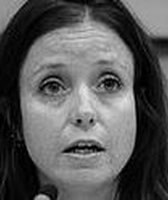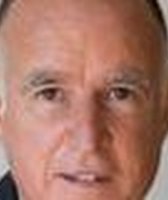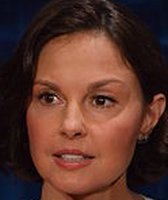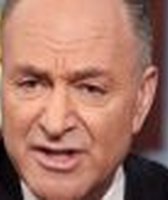Get PolitiFact in your inbox.
When President Donald Trump decided to add chief strategist Steve Bannon to the National Security Council, Republicans and Democrats alike expressed alarm.
The GOP’s 2008 presidential nominee, Sen. John McCain, called it a "radical departure from any National Security Council in history," while Democratic Florida Rep. Stephanie Murphy introduced legislation that would kick Bannon off the council.
Meanwhile, two days after the White House announced the council’s organization, press secretary Sean Spicer said Bannon’s inclusion was merely a move toward transparency. He also said the apparent demotion of the nation’s top military and intelligence officials on the council wasn’t a demotion at all.
With all these competing claims, we wanted to sort out the facts.
What is the National Security Council, and what does it do?
Established in 1947, the National Security Council gathers top officials in foreign and domestic policy, the military and the intelligence community to advise the president on national security.
By statute, the council’s members includes the president, vice president, secretary of state, secretary of defense and, as of 2007, secretary of energy. Similarly, statutory advisers are the chairman of the Joint Chiefs of Staff (the nation’s top military official) and the director of National Intelligence (replacing the director of the CIA after the post was created to oversee the entire intelligence community following the Sept. 11, 2001, terrorist attacks).
Presidents add other members at their own discretion, but they typically are other cabinet heads and policy officials. The council’s organization, size and influence has varied from administration to administration depending on the needs and habits of the president, according to a Congressional Research Service report and experts.
"(Harry) Truman was an infrequent participant in NSC meetings, especially before the Korean War. (Dwight) Eisenhower, on the other hand, attended almost all of them. Eisenhower liked clear lines of organization and a formal process. Others, like (John F.) Kennedy, prefer ad hoc groups and flexibility," said Joshua Rovner, a national security professor at Southern Methodist University.
"As National Security Advisor, (Henry) Kissinger greatly expanded the size and duties of the NSC staff as a way of concentrating the foreign policy process around the White House. Subsequent administrations expanded it further still," Rovner said.
Overall, the body has been largely used to strategize national security policy. For example, it played a crucial role to both major foreign policy debacles such as the Bay of Pigs invasion and the Iran-contra affair, as well as major victories like the unification of Germany and the killing of Osama Bin Laden.
What is the principals committee?
Within the National Security Council is a subgroup called the principals committee, first created under President George H.W. Bush. The group typically consists of the overall council minus the president and vice president.
Typically, the principals committee is comprised of statutory members like the secretaries of state, defense and energy and the chairman of Joint Chiefs of Staff and Director of National Intelligence and non-statutory members like the secretaries of treasury and homeland security, the attorney general, the United Nations representative, the Director of the Office of Management and Budget, the chief of staff to the president and the national security advisor (often the chair).
Other top officials like the secretary of commerce and the U.S. trade representative are invited to attend meetings relevant to their areas of governance.
It often meets once or twice a week and acts as the final review and negotiating body before policies and strategies hashed out in sub-committees and working groups are presented to the president.
"If the process works as intended, the president does not have to spend time on uncoordinated policy recommendations and can focus on high level problems and those issues upon which the departments and agencies could not reach a consensus," according to the Defense Department’s National Defense University.
What is different about Trump’s National Security Council?
By the time of George H.W. Bush’s presidency, the NSC had become more or less standardized as a conduit for assessing and planning national security strategy.
"The basic structural organization of interagency working groups, department deputies, and department principals organized in the George H.W. Bush administration has been retained for every succeeding presidential administration," according to the National Defense University’s report.
As PolitiFact has reported, the Trump administration removed the chairman of the Joint Chiefs of Staff and the director of National Intelligence (or the CIA director, the position’s pre-2004 equivalent) as regular members of the principals committee, and also gave Trump’s chief strategist, Bannon, a seat on the council and principals committee.
What has been the role of the chairman of the Joint Chiefs of Staff and the Director of National Intelligence?
The nation’s top military official and top intelligence officer sat on the principals committee under Presidents George H.W. Bush, Bill Clinton and Barack Obama.
President George W. Bush stipulated that the chairman of the Joint Chiefs of Staff and CIA director (the predecessor to the Director of National Intelligence) "shall attend where issues pertaining to their responsibilities and expertise are to be discussed" in his 2001 memo. Trump’s memo says this pretty much verbatim.
Experts told us outrage on this particular change, or rather reversal, is overblown. Despite being regular members under Obama, the chairman of the Joint Chiefs of Staff did not attend every principals committee, nor did he under Bush, according to Peter Feaver, a Duke University professor and former adviser to the National Security Council under George W. Bush.
"On the contrary, if the topic did not touch military issues or had crossed over into political considerations, the chairman of the Joint Chiefs of Staff would either not attend or leave the meeting," Feaver said. "On this aspect of the issue, the Trump team is telling the truth and Obama critics are not."
Similarly, John Bellinger, legal adviser for the National Security Council under Bush, told NPR that there’s really no need for the chairman of the joint chiefs nor the Director of National Intelligence to be involved if the meeting pertained to, say, hurricane mitigation.
Whether this organization is cause for concern remains to seen, and depends on how Trump will use the NSC, Rovner of Southern Methodist University pointed out.
"It is entirely possible that they will be invited as a matter of routine," he said. "When it comes to the NSC, presidential preferences and personal relationships are much more important than organizational charts."
The Joint Chiefs of Staffs chairman Gen. Joseph Dunford Jr., himself does not seem particularly concerned, saying in a statement that Trump’s organizational memo "makes it clear" that he will "fully participate in the interagency process."
Why is Steve Bannon’s appointment so controversial?
Many have criticized Bannon’s appointment as breaking with the tradition of keeping the NSC an apolitical body.
Bellinger stressed that Bannon’s counterpart in the Bush administration, Karl Rove, was deliberately kept out of council and committee meetings "to send the signal that national security decision-making is not based on domestic political concerns."
But according to White House press secretary Sean Spicer, Bannon isn’t playing Karl Rove’s role and has "an extensive military background (and) extensive background in geopolitical affairs."
Bannon received a Masters in Security Studies from Georgetown University and served in the Navy for seven years. To some, like Foreign Policy magazine editor and chief executive David Rothkopf, this does not equate to "extensive experience."
To Rothkof, Bannon’s role as chairman of Breitbart.com is "more troubling" still. The website has championed the views of the so-called "alt-right" movement. On his radio show, USA Today reports, Bannon portrayed a global cash between the West and Islam and predicted a war with China — views that are at odds with modern U.S. foreign policy.
Spicer also pointed out in his Jan. 30 briefing that Obama’s political adviser David Axelrod attended meetings, adding, "What this shows is that this administration’s being rather transparent."
There is, however, a difference between the two roles. Axelrod did attend meetings but did not speak, and was not a regular member, he said. As far as we are aware, Trump is the first in decades to the give his political adviser a seat on the NSC. Edwin Meese, counselor to President Ronald Reagan, was a member of the council.
Whereas Bush drew a bright line in separating the White House’s political and policy arms Feaver characterized Axelrod’s and other Obama advisers’ access a "blurring of those lines" while "President Trump goes a step further and provides for his chief political adviser to attend all top-level national security meetings."
"At a minimum the new organization seems to signal that Bannon will have a central role in the policy process," Rovner said. "Whether he does in practice remains to be seen."
Our Sources
C-SPAN, "White House Daily Briefing," Jan. 30, 2017
The International Security Sector Advisory Team, "The National Security Policy Process: The National Security Council and Interagency System," Aug. 2011
Congressional Research Service, "The National Security Council: An Organizational Assessment ," Dec. 28, 2011
The White House, "National Security Directive 1," Jan. 30, 1989
The White House, "Presidential Decision Directive/NSC-2," Jan. 20, 1993
The White House, "Organization of National Security Council System," Feb. 13, 2001
The White House, "Presidential Policy Directive," Feb. 13, 2009
The White House, "Presidential Memorandum Organization of the National Security Council and the Homeland Security Council," Jan. 28, 2017
NPR, "Legal Adviser For George W. Bush Speaks On Restructuring of Security Council," Jan/ 29, 2017
PolitiFact, "Spicer's misleading claim that Trump's National Security Council is 'identical' to Bush's, Obama's," Jan. 31, 2017
Washington Post, "The danger of Steve Bannon on the National Security Council," Jan. 29, 2017
Email interview with Peter Feaver, professor at Duke University, Feb. 1, 2017
Email interview with Joshua Rovner, professor at Southern Methodist University, Feb. 1, 2017








































